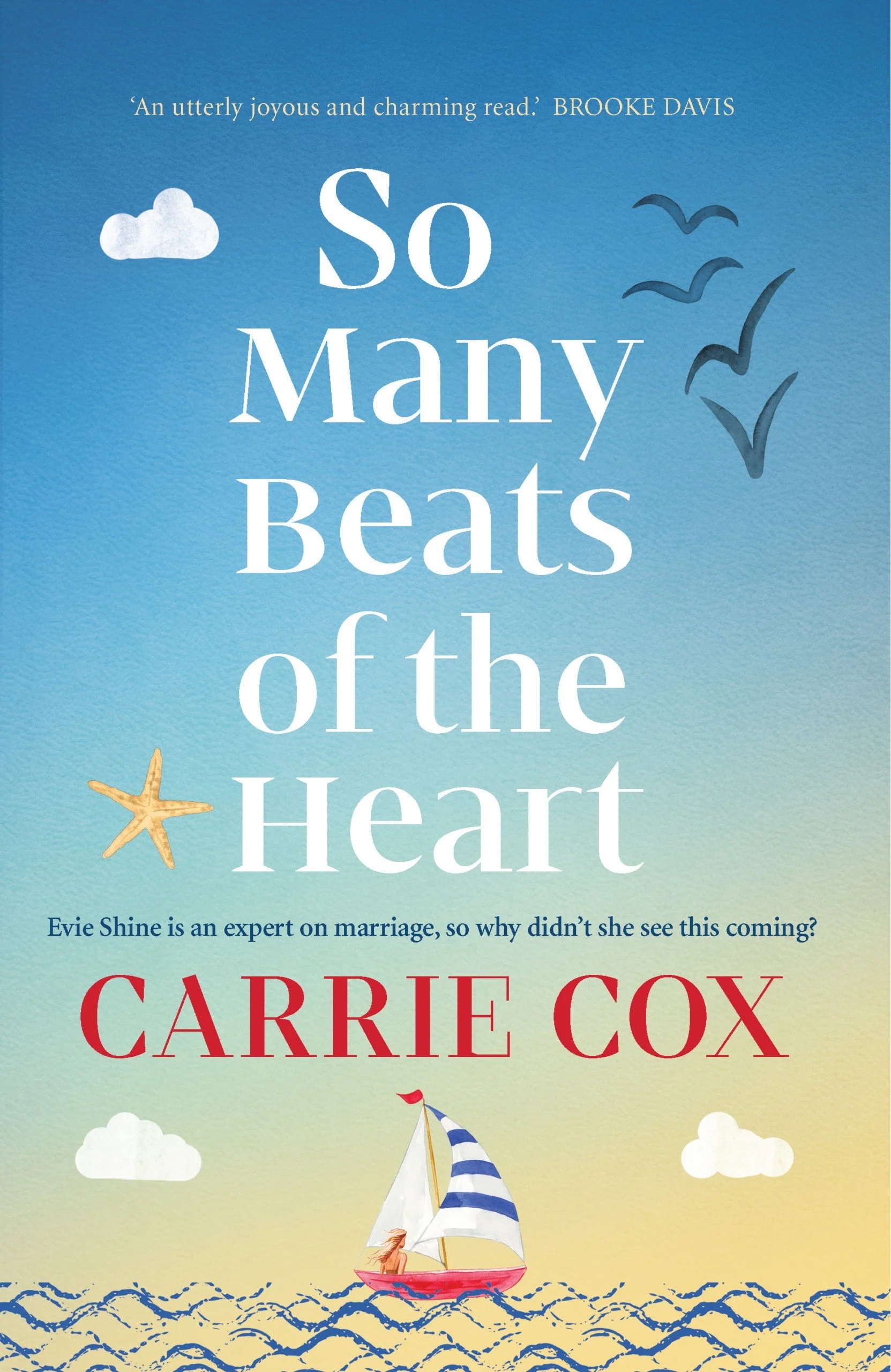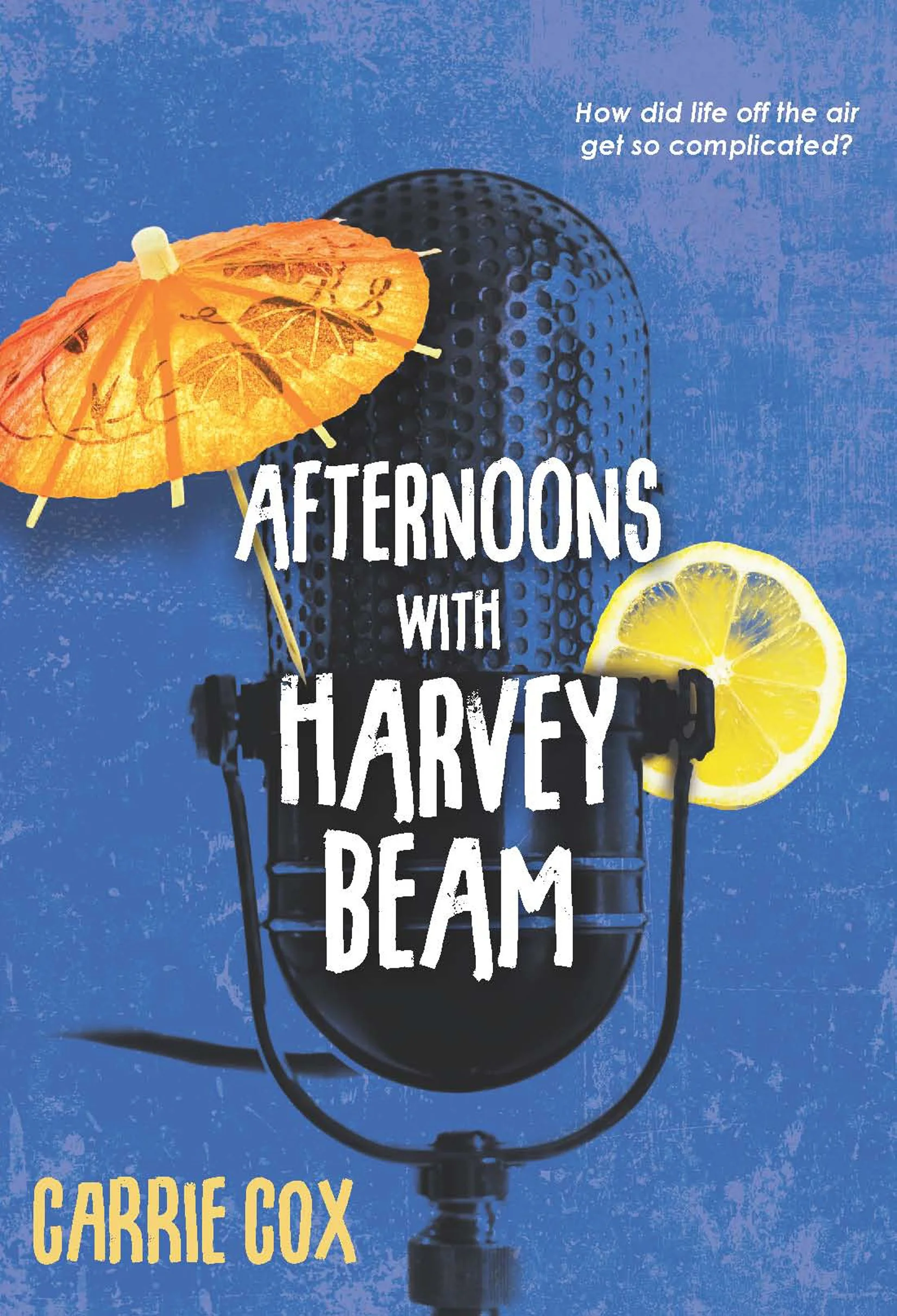From Doubt to Triumph with Carrie Cox
Lisa CliffordShare
Settle yourself in for a wonderful read about a woman who commits herself to the creative writing process. Carrie Cox is a former Art of Writing writer (soon to be a guest speaker in 2023 – lucky us!) and has just published her second book. Her story here is one of determination in the face of surprise setbacks. Carrie had previously mentioned how her writing journey was riddled with self-doubt. Is there a writing ride that isn’t punctuated with uncertainty and insecurity? I don’t think so. But in this Art of Writing Blog, Carrie tells us how she stared down disheartened doubt and won.
***
Lisa: I've often talked about how it's necessary to tell friends that I must stay home and write. Basically, I can't come because I must write. My children would often say 'have you finished the book yet, mum?' What did you sacrifice to get this book written? What did it take for you to finish So Many Beats of the Heart?
Carrie: This book was a very different writing experience to my first novel. That one had no pressure riding on it, no imperative to even be published (though of course I hoped it would). It was basically an exercise in me working out how to write a novel and also in getting down a story that had been percolating within me for some time. I wrote it in the cracks between paid work and it took me about three years in total. Only my family knew that I was working on a book, and it barely impacted on their lives at all in terms of the time I spent working on it.
The second novel was a very different story (in every sense!). It basically became my exit strategy out of a job that had become unbearable and untenable due to covid. I was running the communications team at a university when covid first arrived and all too quickly my job became a 16-hours-a-day, no-weekends affair in constant crisis comms mode (ulcer-growing stuff). No comms team is set up for a pandemic, and universities in particular had many pain points when it came to covid – think campus safety, stranded international students, online teaching delivery, remote workforce etc etc. I knew I had to get out somehow because not only was my own health suffering but also the ‘back end’ of family life was rapidly falling away – all the things that keep a house running and teenage children fed and watered.
But of course, no-one wants to be THAT person who quits a team during a pandemic, so I decided that book-writing had to become my lifeline, my semi-legitimate excuse to quit a job. I told the university I had a contract to write the next book (I may have exaggerated that fact just slightly!) and asked my husband if we could live on his wage for six months. I promised him I could finish the book in that time, which in hindsight was a ridiculous proposition. He said, “Look, it’ll be tight, but okay.” Bless him! And so, for the first time in my life I committed myself to the creative writing process in a clear and demonstrative way. I quit my job without burning any bridges. Everyone was happy for me – there were cakes and flowers and lovely cards full of well wishes from the university. And then I sat down in front of my home computer and thought shit. Now I actually have to write this book. Public accountability is a very motivating force.
Two weeks later my husband was sacked.
I know, right? Suddenly we had no income and no immediate prospect of income. And I started looking for paid work again, grabbing at anything. But my husband quickly stopped me and said no, let’s stick to the plan: write the book (and get a contract!) and we’ll work out the rest. The world appears to be ending anyway, he said.
So I wrote the book and I treated it like a full-time job. I took myself off to my friend’s co-working space each day and I worked very hard, my jaw set tight with the pressure of it all. It was not a pleasurable writing experience in the way the first novel had been, but nor was it miserable. It was just different, like everything else during the pandemic, I guess.
And it took me nine months, not six, and then another four months to secure an agent and then a contract. By that time my husband had found a new job (thank goodness!) and we could laugh about what a crazy time it had been for all of us as a family. I was really pleased that the kids could see that I’d set myself a difficult task and followed through on it and that there’s something to be said for that in life.
Lisa: At the beginning of their projects, I get the impression that writers might dedicate Sundays to their novels or memoirs. That is...if it's raining, if there's nothing better to do, etc. But is writing on a Sunday, or one day a week, enough?
Carrie: For me, one day a week just isn’t enough because I can never write much more than four hours at a stretch. Everything written after four hours in front of a manuscript is usually rubbish for me. That’s why the first novel took so long to write – I could usually only manage one spare morning or afternoon a week around full-time work.
That said, when you’re working on a book, it’s always with you. It’s part of you, taking up lots of headspace. So even when you’re not sitting down and actually writing, you’re thinking about those characters and where they’re headed; how you’re going to tie it all together, make a beautiful tapestry. I think the trick is get those thoughts down before they disappear into the ether, and to do that you need to be physically writing as often as you can, even if that means just making a few notes while you’re on the train to work.
Lisa: Did you find yourself disheartened at any stage? What stage was that? What advice would you give to new writers to help them stay the course?
Carrie: Disheartened. Disconsolate. Disillusioned. Dis-everything! For me, the writing process is riddled with self-doubt and I’m my own biggest obstacle. I have to talk myself around at least once a day, and I do. I remind myself that the joy of writing – and the wondrous privilege of connecting with readers – doesn’t just happen. I have to make it happen. And of course, that when the words are flowing and the story takes over, there is no better feeling in the world.
The best piece of advice I was ever given is that writing is a game of inches. That idea really speaks to me. Even on the days when things aren’t flowing and I only manage an inch, it’s still an inch. I’m still headed in the right direction. Keep laying down the inches.
I also think that it’s important to connect with other writers whenever possible. It’s why retreats like the Art of Writing are so valuable. There’s something very validating and encouraging about being with people who experience the same self-doubt, the same obstacles and who are nevertheless determined to tell their stories. It helps you identify as a storyteller, not as some kind of storytelling imposter. And it can be very inspiring because stories unlock stories.
When I can’t physically be with other writers, I listen to a lot of writing podcasts. It’s amazing how many very successful writers still experience self-doubt. That can be helpful to know. I also usually come away with lots of new tips and ideas.
Lisa: Did you apply for any residencies or grants that gave you an opportunity to dedicate yourself to finishing your book? Which ones were they and how did they help?
Carrie: I applied for a few grants (unsuccessfully) and one residency (successfully). The residency was a two-week stay at a cabin in the bush at a place called Katharine Susannah Prichard Writers’ Centre. By the time the residency came around, I had already finished the manuscript, however I used the time for editing and it was invaluable. Having uninterrupted writing time is such a gift. These opportunities are definitely worth applying for – and there are a lot more on offer than most people probably realise.
Lisa: How can emerging writers improve their confidence? Or do you think that doubt and a lack of confidence are simply issues every writer deals with?
I would suggest finding a beta reader that you trust – someone who believes in your talent and supports your goals but who is also honest enough to give you constructive feedback along the way.
***
You can purchase Carrie’s books at the following: So Many Beats of the Heart or Afternoons with Harvey Beam
***
If you’d like to share any comments or thoughts, I’d be happy to hear from you. Email me directly at lisacliffordwriter@gmail.com.




